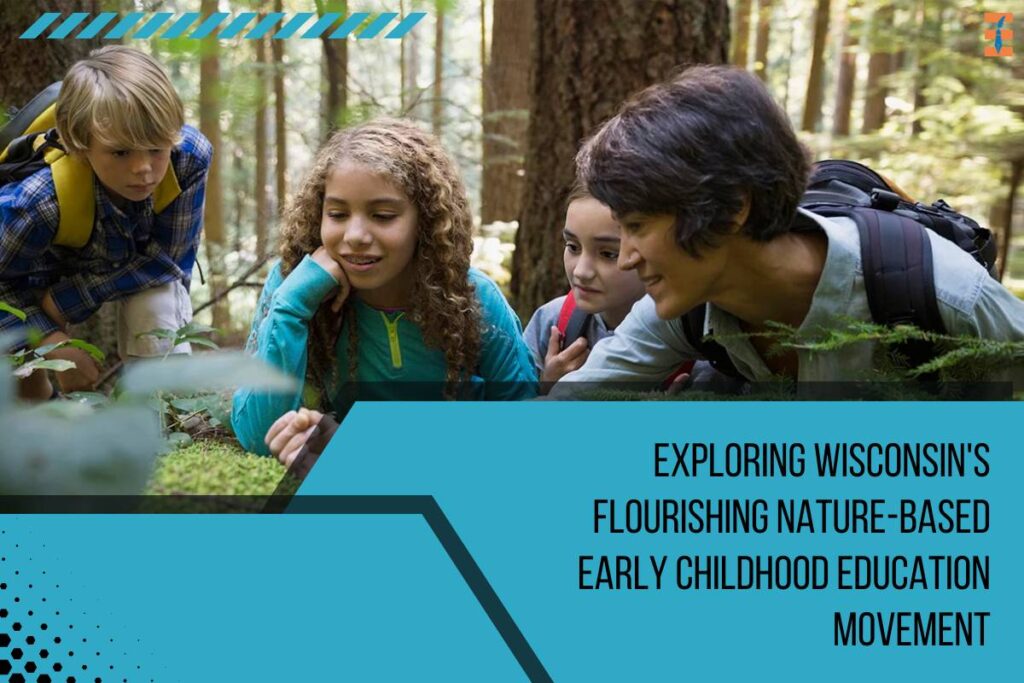Source-YES! Magazine
In the heart of Wisconsin, educators like Carissa Tikalsky are pioneering a unique approach to nature-based early childhood education. At Lake Edge Learning Center in Neenah, Tikalsky’s interviews with prospective teachers are revealing moments. With a simple stick held up and a timer ticking, she poses a question: “In 30 seconds, tell us how many things this stick can be.” For Tikalsky, this isn’t just a test of creativity; it’s a litmus test for understanding the essence of nature-based early childhood education.
Nature-based early childhood education goes beyond merely spending time outdoors. While ample outdoor play is a cornerstone, it’s also about fostering resourcefulness, nurturing imagination, and instilling a sense of stewardship towards the environment. Programs like Lake Edge are becoming increasingly prevalent across Wisconsin, notes Tara Von Dollen, an adjunct instructor at the University of Wisconsin-Whitewater. However, the diversity in defining what constitutes a “nature-based” program makes it challenging to compile a centralized database.
Understanding the Spectrum of Nature-Based Education
According to Von Dollen, the spectrum of nature-based early childhood education ranges from minimal incorporation of nature to full immersion experiences. At one end, there are programs where nature serves as a backdrop for structured learning activities. On the other end lie full immersion programs like the Aldo Leopold Nature Preschool in Monona, where children spend the majority of their time outdoors, engaging with natural materials and emergent learning.
Peter Dargatz, an educator at Woodside Elementary School in Sussex, offers a glimpse into the middle ground. His kindergarten class balances structured learning with ample time spent outdoors, delving into activities like birding and gardening. Similarly, Cuddle Care in Howard strikes a balance between structured indoor activities and outdoor exploration. Co-owner Amy Coté points out their playground, which seamlessly integrates traditional play structures with nature-inspired elements like mud kitchens and climbing trees.
Embracing Nature-Based Early Childhood Education’s Complexity and Potential
Navigating the complexities of nature-based early childhood education requires acknowledging its fluidity and adaptability. Von Dollen emphasizes the importance of not just being in nature but teaching with and about nature. This holistic approach fosters a deep connection between children and the natural world, laying the foundation for lifelong environmental stewardship.
As Wisconsin witnesses a resurgence of interest in nature-based early childhood education, educators like Tikalsky, Von Dollen, and Dargatz are at the forefront, shaping the future of early childhood learning. By embracing the diversity of approaches and philosophies within the nature-based education spectrum, they’re not just preparing children for academic success but nurturing their innate curiosity and reverence for the world around them.
Also Read: The Transformative Power of Online Early Childhood Education

